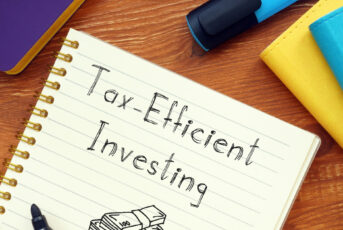Silicon Valley Bank Failure
As you may have heard on Friday, the FDIC took over Silicon Valley Bank (SVB) sending investors and the banking community into panic mode. Ara has extensive experience in banking, started his career at the Federal Reserve Bank, and serves on the board of directors of Mission Valley Bank. Therefore, this edition will cover some bank basics to help explain banking, what happened in the case of Silicon Valley Bank, share how ACap is responding on behalf of clients, and allay concerns.
How banks make money
Banks make money by taking deposits and making loans at higher rates than the cost of deposits. If there is not enough loan demand, the bank invests that money until they can lend it out. Banks prefer to make loans because they earn more money versus investing the deposits in securities.
Why Banks Fail
The number one reason banks fail is because they make bad loans, the largest asset for a bank. Interestingly, SVB had very few loans per their Uniform Bank Performance Report (www.ffiec.gov). A key liquidity measure for banks is the loan to deposit ratio. A high ratio means less liquidity because the bank has lent out all of its deposits; a low ratio means the bank is very liquid because it has more deposits than loan demand. A good ratio is 75%. SVB had an incredible 41% loan to deposit ratio as of 12/31/22*.
So what went wrong?
SVB’s customers were primary tech companies that are backed by venture capital (VCs) firms. Until very recently, tech companies were flush with cash so there was no need for loans and they parked their cash at SVB. As a result, SVB had ample cash but without enough loan demand. To earn on the deposits, SVB invested the cash into long-term US Treasuries.
Long-term Treasuries are much more sensitive to changing interest rates than short-term Treasuries and as the Fed raised interest rates, the value of SVB’s long-term Treasuries declined. Even though SVB did not sell those investments, banks must still report those unrealized losses. Because SVB had so much in US Treasuries (45% per regulatory filings*), the absolute dollar amount of the unrealized loss was high and it caused panic among VCs who instructed their clients to withdraw. According to the Wall Street Journal, on March 9, 2023, SVB customers attempted to withdraw $42 billion on this single day. While US Treasuries are liquid and safe because they are backed by the U.S. government, the process to liquidate does take a few days which was not enough time for the bank to liquidate the US Treasuries to raise the cash.
*Per Uniform Bank Performance Report from (www.ffiec.gov)
Tax-Deadlines Extended for Most California residents
The IRS and State of CA have extended the tax filing and payment deadline for many Californians affected by the recent storms in disaster areas as designated by the Federal Emergency Management Agency (FEMA). These taxpayers have until October 16, 2023 to file and make tax payments, including PTE payments, without interest or penalty, The automatic extension also applies to estimated tax payments that would have been due on January 17, April 18th, June 15th, and September 15th. Additionally, the extension applies to funding deadlines for IRAs and HSA accounts.
Where to safely park your cash tax-free
The recent failure of Silicon Valley Bank has raised concerns about uninsured deposits (deposits greater than the $250,000 FDIC limit). A good safe alternative to park large amounts of cash is US Treasury Bills (T-Bills). All US Treasuries, regardless of their maturities, are safe from default, but long-term Treasuries are susceptible to rising interest rates. T-Bills are short-term bonds issued by the U.S. government. Because they are short-term, they are not subject to changing interest rates.
For a long time, interest rates on savings accounts were near zero. While that was great if you were buying a house or refinancing an existing mortgage, it wasn’t beneficial for the saver looking to earn a decent return on cash.
The Federal Reserve has raised interest rates eight times since March 2022 to combat inflation and slow the economy. The good news is that as a result, savings rates have also risen. Banks such as Amex, Marcus, and Synchrony are all offering rates around 3.75 percent. But, Treasury Bills (T-Bills), the often forgotten investment, have now become the best choice if you’re looking to park your cash.
The 3-6 month T-Bills now yield between 4.57% and 5.18%. You can buy T-Bills either in your Schwab account or through the Treasury directly. As an added bonus, T-Bills are exempt from state income tax so if you are in a high tax bracket, your effective interest rate on the T-Bills will be even higher.
Looking for an independent fiduciary financial advisor who can advise you on investments, retirement, real estate, alternative assets, and taxes? Contact ACap Advisors & Accountants to schedule a free initial consultation. Our clients include individuals, small businesses, entrepreneurs, and anyone serious about saving and investing for their future.









